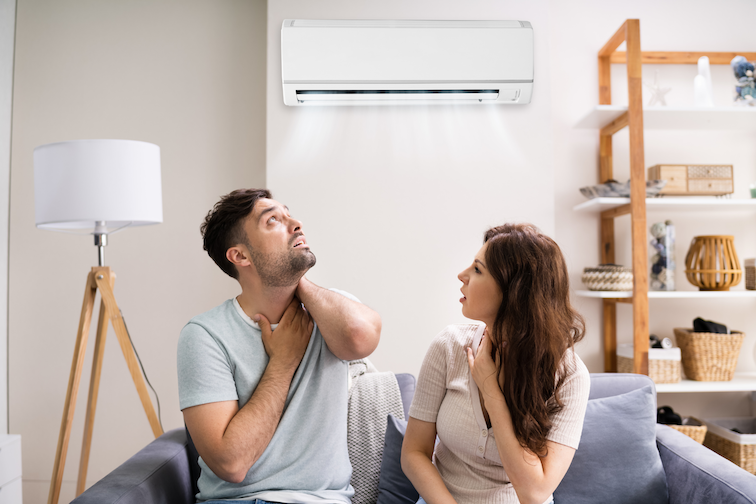Air conditioning can be great on days when your house or office is unbearably hot. However, have you ever felt that it makes you feel lousy? You know that stuffy, headachey, tired feeling. Whether you are an AC enthusiast or a casual user, it is crucial to know the health issues associated with its use. Once you have become aware of a problem, you can contact A-Plus Quality, HVAC services in the Greater Toronto Area, for professional for air conditioner maintenance in Toronto.
Breathing Issues Caused by Poorly Maintained AC Systems
Air conditioners and how they operate to cool the air will not cause respiratory problems. The concern is that AC systems often are not cleaned and maintained as regularly as they should be. Bacteria and fungi can build up in the system, causing health issues. Regular filter changes and cleaning will remedy this problem. An expert from A-Plus Quality, HVAC services in the Greater Toronto Area, can take care of this for you.
Health Issues Caused by Air Conditioning Set Too High
Living and working in a cold environment can produce long-term shivering. These involuntary muscle movements cause sore joints, make you tired, and can give you a headache. Heat intolerance is also an adverse reaction to excessive air conditioning; this results from the shock experienced by your body moving from the cold to the hot air outside.
To avoid these side effects, turn the AC down. There should not be an extreme contrast between the outside temperature and the climate inside your home or office. If you are unsure about optimal temperature, reach out to an HVAC technician from A-Plus Quality, HVAC services in Toronto, can ensure that your system keeps your space at the optimal temperature.
Sickness Caused by Poor Indoor Air Quality
An air conditioning system could be recirculating the stale air in your home or office. If mold, dust, animal dander, or airborne infections are floating around, you are more likely to be exposed and get sick. Assure you are changing your air filter every 60 days. Additionally, invest in systems that will help improve indoor air quality such as an air cleaner and humidifier.
Our HVAC experts at A-Plus Quality, HVAC services in the Greater Toronto Area, will help keep your air conditioner in top shape. Whether you want to have a system installed or need air conditioner maintenance in Toronto or surrounding regions, you can depend on us. Contact us today to speak with a specialist for any inquiries.



